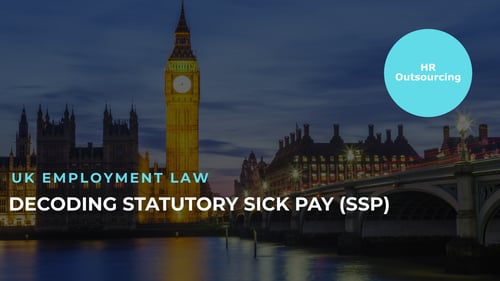Employment Law Changes 2022
With every new year, there are new changes in employment law in Europe. We've seen a number of changes that have an impact on labor laws in different countries throughout Europe. This blog will briefly note some of the most important or the most interesting changes that have taken place or that will soon come into effect. The focus is on selected few European countries.
Different labor laws in different countries are also bringing different changes to the market. Gathering them all would not be possible in a short form such as a blog article, but if you are interested in learning more about working conditions in Europe, we would be more than happy to discuss it further.
Employment law changes in Germany
Increased minimum wage
Starting this year, the minimum wage for employees in Germany was increased to EUR 9.82 gross per working hour. The growth won't stop there, but it is set to increase again in July 2022 to EUR 10.45 gross per working hour. The newly elected government has announced that as part of their campaign promises there will be an additional increase. However, this has not been put into legal effect yet.
Post-Covid changes
A series of changes were driven by the COVID-19 pandemic. Here is a brief overview of all of them:
- There is a 3 months extension to the existing maximum period of 24-months possible and 50% of social security contributions paid by the employer during short-time work can be reimbursed.
- Employees are entitled to 70% of the net pay difference from the 4th month and 80% from the 7th month on. These percentages are going up by 7% if there is a child present in the household
- Employers in Germany were provided the option to grant their employees a total tax-free amount of EUR 1.500 as a so-called "Corona-Bonus“ and this option has been extended to March 31, 2022.
- In October 2021, medical doctors have been obliged to provide digital sick notes to the employee’s health insurance providers.
The threshold for social security contributions to the general pension insurance schemes will increase in East Germany to EUR 6,750/month; and will decrease to EUR 7,050/month in West Germany.
Increased budget for the regular training of people with disabilities from January 2022 (Teilhabestärkungsgesetz)
Home-Office allowance extension
For the tax years 2020 and 2021, a home office allowance for employees in the amount of EUR 5.00 per day (max. EUR 600.00/120 days per year) was introduced. The newly elected government has announced an extension to this allowance up until December 31, 2022.
Learn more about hiring in Germany.
Employment law changes The Netherlands
Minimum wage increaseThe minimum wage for employees in the Netherlands will have a slight increase, from EUR 1,701 to EUR 1,725. This increase is effective since the beginning of this year for employees aged 21 and more.
Tax-free home working allowanceAs a result of the various work-from-home policies set up due to covid, as from this year, employers may now grant their employees a tax-free allowance of EUR 2.00 for every day they work from home to compensate for the increased costs associated with their home-office setup. However, employees cannot claim both, a tax-free home working allowance and travel allowance.
Paid parental leaveThe Netherlands has slowly been increasing parental leave over the last few years, effective 2 August 2022, parents in the Netherlands will have eight to nine weeks of parental leave, paid at 70% of their daily rate up – to a maximum of €155. This paid parental leave must be taken in the child's first year of life.
Elevation of state pension ageFrom January 1st, 2022, the state pension age will be increased by four months resulting in a first state pension age of 66 years and seven months.
Employment law changes in France
Inflation Bonus (Prime d’inflation)All the employees over the age of 16 who are earning less than €2,000 net per month will receive a single payment of over €100 from the state. The payment will not be subject to national contributions or taxes and has to be paid prior to 28 February by the employer.
Support for young companiesYoung companies that are found within the last 11 years and have less than 250 employees are eligible to get lower employer contributions and a tax exemption. Besides these criteria, their turnover should be less than 50 million. The share of the tax exemption will be at 100% in the first year and 50% after that until the 10th year.
Integration of disabled workers (OETH – Obligation to Employ Disabled Workers)In the 2022 Finance Act, it is clarified that the relevant number of employees and the percentage of disabled workers are taken into account from the year in which the contributions are due. As an example: If the contributions for the year 2021 are paid in 2022, the proportion of employees in 2021 is respective for the calculation. Generally, the contributions are relevant for companies with at least 20 employees and less than 6% of disabled workers.
No salary transfer to third-partyFrom the 26th of December 2022, employers are not allowed to transfer the salary of their employees to an account of a third party (Such as a partner or family member). The employer is obliged to transfer the payment directly to a bank account of which the employee is the owner or co-owner.
Child’s disability leaveEffective from December 18th, employees are able to take at least 2 days off work in case of disability, chronic pathology, or cancer of their children.
Mutual Termination Agreement (Rupture Conventionnelle)Individual mutual termination agreement requests from 22 April 2022 must be made via a website set up by the Ministry of Labor, and can no longer be made via a CERFA form
Employment law changes in Austria
“3G” at the workplaceFrom 1 November 2021, all employees must be fully vaccinated, fully recovered, or tested negatively for Covid-19. Exceptions from the rule are employees who have no too little contact or other designated groups of people e.g. lorry drivers or employees that are working from home. Employers are required to check the “3G” rule by random checks. In the case of non-fulfillment, there can be administrative fines of up to €500 for the employee and up to €3,600 for the employer.
Dismissals during short-time work do not create automatic Individual Protection Against Dismissal
The Supreme Court of Justice ruled that short-time work formed during the covid-19 pandemic with strong financial support cannot serve as a reason to dispute individual dismissals. Thus, dismissals can only be annulled if there are unlawful motives or if social considerations have been violated.
Compensation for annual leave in case of unjustified termination
From the 25th of November 2021 compensation for unused annual leave has to be paid by the employer even if the employee terminates the employment unjustified (e.g. without good cause and without observing the notice period). The only condition to the claim is that the termination took place within the last three years. It is therefore advisable to adopt the collective bargaining agreement and the employment contracts.
Employment law changes The UK
Flexible workingThe Employment Bill which was originally planned to be introduced in 2019 is now expected to be published in 2022. This will allow employees that are in service for more than 26 weeks reasonable notice of working hours and compensation for short-notice shift cancellation.
Pay and holidayTo honor the queen’s platinum jubilee, there will be an extra public holiday on June 3rd, 2022. As the late May bank holiday has been moved to the 2nd of June, there will be a long weekend at the beginning of June 2022. Furthermore, the UK announced that they want to give 12 weeks of leave to parents of premature infants that had to be treated in the neonatal care units.
National Living WageWorkers over the age of 23 will have an increase of 6.6% in their national living wage. From April 2022 the wage will be £9.50. The UK additionally introduces the social levy this year and raises the National Insurance Contributions by 1,25%. The usual rise in statuary rates, statuary limits, statuary sick pay, and maternity pay will be in April 2022.
Modern Slavery ActThe Modern Slavery Act which was already announced in 2020 is now expected to come this year. If that’s the case companies will have to review their anti-slavery policy in order to meet the new regulations. This is very important, especially at this point as supply chains of the ESG agenda are gaining more importance.
Non-compete clausesFollowing a consultation, there might be regulations introduced regarding the non-compete clauses in employment contracts. For low-paid contracts, a ban concerning this matter is being discussed.
Whistleblowing changes in all of the mentioned countries
Following the European Directive 2019/1937/EU, Germany will increase the protection of whistle-blowers. The original deadline for this initiative was never realized (December 2021), but the newly elected government promised that it will be introduced within the first six months of the year. In addition, the protection will be broader than the EU directive and might also apply to violations of national law. This act will most likely be accepted in the Netherlands and the UK, as well as in France.
If you would like to discuss your HR outsourcing opportunities in Europe, feel free to schedule the call with Monique Ramondt-Sanders - VP of Human Resource Outsourcing at EuroDev.
About EuroDev
Many companies are struggling with many different employment laws in various European countries and that stops them from expanding their HR services in Europe. And that is where EuroDev can help you out! Our company was established in 1996 in the Netherlands with a single, defined purpose to help mid-sized North American companies expand their business in Europe. So far, we have partnered up with over 500 companies and helped them define and meet their European business goals. Services provided include Sales Outsourcing, HR Outsourcing, and Digital Marketing.
Disclaimer: While we strive to provide accurate and timely information, please note that HR policies and regulations can change frequently. It is recommended that you seek guidance from our HR consultants to ensure that the data presented here is current and accurate.
Another relevant content:
Employer of Record in Europe
EuroPedia
Category
Related articles
-

Essential Guide to French Employment Regulations
22 March 2024comprehensive guide on French employment regulations for companies expanding to France, covering...
Read more -

Germany's Pension Landscape: Navigating Benefits and Taxation for Informed Decision-Making
5 February 2024Dive into the intricacies of the German pension system: benefits, calculations, retirement options,...
Read more -

Decoding Statutory Sick Pay (SSP) in the UK
29 January 2024Navigate the complexities of Statutory Sick Pay in the UK with our guide on rights, regulations,...
Read more

